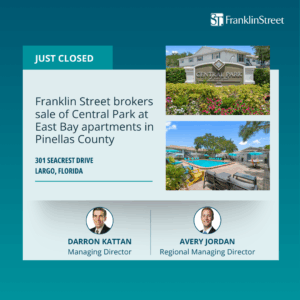WASHINGTON, DC—US HUD Secretary Julian Castroadded another “to do” item to the lame duck Congress’ list of things they should get done before they adjourn on Dec. 11: pass the bipartisan Johnson-Crapo Senate billintroduced earlier this year that would wind down the GSEs.
“This could be, I believe, a good victory in the lame duck session or next term of Congress for housing finance reform,” he said in an interview with Bloomberg Television earlier this week. The crux of the plan – doing away with Fannie Mae and Freddie Mac, creating a backstop for these loans and removing tax payer risk – are all supported by the Obama Administration, he said.
“Housing finance reform will continue to be a priority for the Obama Administration,” Castro said.
The multifamily finance industry has been expecting GSE reform for years now; certainly there have been calls for their dismantlement when they were placed in conservatorship in 2008 during the depth of the financial crisis. Many in the industry, in fact, would welcome their sunset, in the expectation that the private sector could fully and more efficiently and more cheaply provide the same level of funding.
That is not the unanimous sentiment though. In fact, opinions about the subject in commercial real estate range, widely, across the board from “it is about time” to “the politics are too strident for it to happen” to “maybe it will happen but it is difficult to believe the GSEs could entirely be replaced by the private sector.”
GlobeSt.com spoke with a few people in the industry holding these disparate views to better explore their nuances. Take it away, industry watchers.
It Won’t Happen. But If It Does, It Won’t Change Things That Much.
In a way it is unfair that Fannie and Freddie have been tainted by the problems associated with the single-family market as the multifamily side has been very healthy, Darron Kattan, managing director of Franklin Street in Tampa, Fla., tells GlobeSt.com.
Perhaps that is one reason why, he ultimately thinks Congress will at least keep this component of the GSEs intact if not the entire institution.
“I don’t think the government will eliminate Freddie and Fannie because together they provide very important infrastructure in our economy. However, if lawmakers do take action, I don’t think it will have such a dramatic effect because there are enough private lenders to pick up the slack. There are enough alternatives out there for multifamily investors to choose from.”
CMBS and life companies in particular, which already have a significant share of the multifamily finance market and oftentimes lose out good deals to the GSEs will expand their business, he predicts.
Not Only Will It Happen, But It Should Have Happened A Long Time Ago. Multifamily Finance Will Be Fine.
David Reiss, a professor of Law and Research Director, Center for Urban Business Entrepreneurship (CUBE) atBrooklyn Law School, has been calling for the privatization of Fannie and Freddie for some time and is dismissive of the “Chicken Little claims” that the sector will collapse if the government reduces its footprint in multifamily and single-family housing finance.
“With a carefully planned transition, it is eminently reasonable to believe that we can put private capital in a first loss position for multifamily housing so long as the government retains a role in subsidizing affordable housing and acting as a lender of last resort when necessary,” he tells GlobeSt.com.



